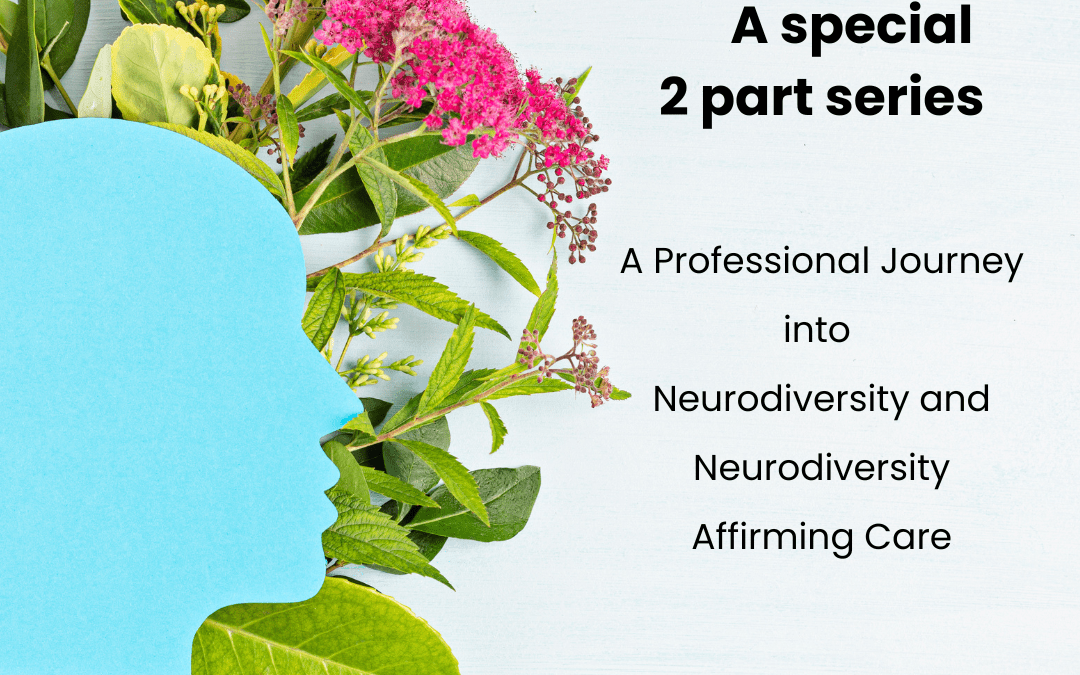Join us for a transformative two-part workshop designed specifically for professionals in the mental health field. This engaging series delves into the rapidly emerging field of mental health practice with neurodivergent clients, offering invaluable insights and practical strategies to enhance your practice.
Whether you’re a seasoned therapist or new to the field, these workshops promise to enrich your expertise and empower you to make a profound impact on the lives of neurodivergent clients. Join us to embrace diversity, foster inclusivity, and unlock the full potential of every mind.
Workshop #1: February 28, 2025
1:00 p.m. – 4:15 p.m.
$50 fee, 3 CE credits offered
Location: Lakehouse Resort – Heartwood Room, 1025 La Bonita Drive, San Marcos, CA 92078
Introduction to Neurodiversity and Neurodiversity Affirming Care:
This course will set the foundation for future learning in the area of neurodiversity affirming care.
Neurodiversity, the natural range in the way one’s brain works/functions, is a hot topic in the mental health field. This course will explore what neurodiversity is, how it manifests in our clients and how our field is catching up to the rapidly growing body of information around this topic. We will also reflect on our own biases and internalized ableism and how these factors color the way we see and work with this population.
This training will discuss how to identify neurodivergent clients (diagnosis of ADHD, Autism and other forms of neurodiversity) and the cultural considerations in the identification process. We will discuss the movement of self-identification and the process of formal evaluation. And finally, we will discuss differential diagnosis and an introduction into treatment considerations.
Course objectives
- Define neurodiversity, what it is and how it manifests
- Define and explain the topics such as burnout and masking
- Describe how neurodiversity can look different in women, girls, and other diverse groups (sexual orientation, gender, race)
- Discuss steps towards diagnostic clarification in ADHD and Autistic clients
Workshop #2: March 21, 2025
1:00 p.m. – 4:15 p.m.
$50 fee, 3 CE credits offered
Location: Lakehouse Resort – Heartwood Room, 1025 La Bonita Drive, San Marcos, CA 92078
Clinical Considerations with Neurodivergent Clients
This course’s primary focus will be on working with neurodivergent clients more effectively in therapy. Once the foundation is set, we’ll cover specific interventions, therapeutic modalities and the “how-to” of working with this population. We will lead a discussion that highlights the adaptations needed for traditional therapy methods to be more affirming and cover the common pitfalls in the application of classic mental health interventions to this population. We will explore affirming accommodations in therapy settings for neurodivergent clients as it relates to treatment outcomes.
Course objectives
Discuss how traditional therapy methods may fall short with the neurodivergent population and why.
Name at least 3 different techniques or modalities that can be used effectively with the neurodivergent population.
Be able to state at least 3 accommodations in therapy that could positively impact treatment outcomes.$50 fee, 3 CE credits offered
Presenters:
 Ruth Millican, PsyD Bio:
Ruth Millican, PsyD Bio:
Dr. Millican (she/her) is a licensed clinical psychologist with over a decade of clinical experience. Dr. Millican has worked in a myriad of clinical settings and has now found herself passionately working in the area of neurodiversity affirming care. Dr. Millican and her wife co-own and run a bustling group practice in San Diego, CA that caters to the neurodivergent, queer and gender diverse populations.
 Miranda Millican, LMFT Bio:
Miranda Millican, LMFT Bio:
Miranda Millican (she/her) is a Licensed Marriage and Family Therapist and co-owner of Wander Psychotherapy. Miranda leads a team of therapists who provide therapy, parent coaching, psychological assessment and support groups for the neurodivergent community in San Diego. Miranda is a queer, Autistic and ADHD therapist and applies her lived experience to her clinical work. Miranda has worked in a variety of therapeutic settings including community mental health clinics, residential programs, military mental health clinics, and school-based programs and non-profits. Miranda’s current clinical interests include making trauma informed care neurodiversity informed, parenting and attachment and mixed neurotype relationships.
Course syllabus will be issued once you register.
To receive updated registration information, contact: Edralyn Botz, ebotz@pfcs.agency
For more information on continuing education at Palomar Family Counseling Service, contact:
Chris DuVall, cduvall@pfcs.agency or David Drazenovich, ddrazenovich@pfcs.agency
Intro to Neurodiversity & Neurodiversity Affirming Care
Clinical Considerations with Neurodivergent Clients
Funding for this 2-part workshop provided by The Foundation for Developmental Disabilities.


